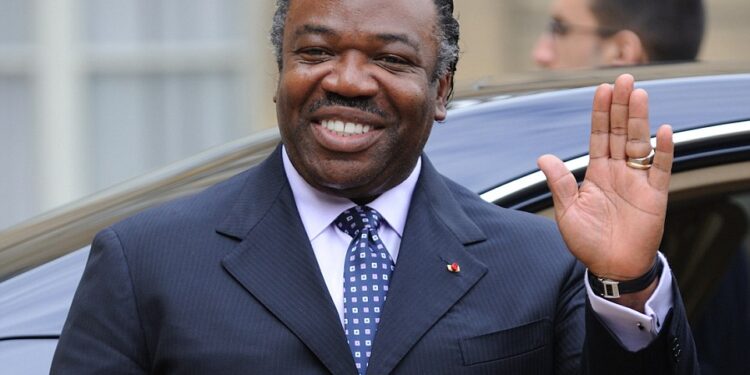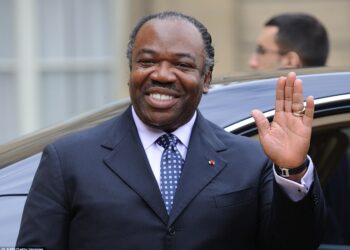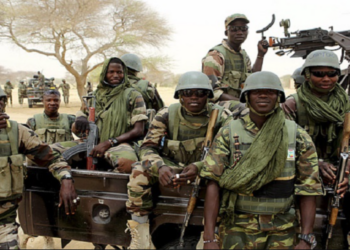In the early hours of Wednesday, a cohort of senior military officers from Gabon emerged on national television.
They declared that they had assumed control following the announcement by the state election body that President Ali Bongo had secured a third term.
Taking the stage on Gabon 24, the officers conveyed that they were acting on behalf of all security and defence forces within the Central African nation.
Their message encompassed the nullification of the election results, the immediate closure of borders until further notice, and the dissolution of state institutions.
Reporters from Reuters noted the audible echoes of gunfire reverberating through the capital city, Libreville, after the televised address.
At that point, the government of the OPEC-member country had not issued an immediate response.
- With a pledge “in the name of the Gabonese people,” the officers conveyed their resolve to safeguard peace by terminating the existing regime.
- The junta leaders said, “We have decided to defend peace by putting an end to the current regime,”
- “To this end, the general elections of 26 August 2023 and the truncated results are cancelled.
- “All the institutions of the republic are dissolved: the government, the Senate, the National Assembly and the Constitutional Court,” he added, announcing the closure of the country’s borders “until further notice”.
Tensions had escalated significantly, driven by concerns of potential unrest subsequent to the recent presidential, parliamentary, and legislative elections.
President Bongo aimed to prolong his family’s 56-year hold on power, while the opposition championed change in the resource-rich yet impoverished nation, reliant on oil and cocoa.
Doubts about the transparency of the electoral process had emerged due to the absence of international observers, the suspension of select foreign broadcasts, and the government’s actions, including cutting off internet access and implementing a nationwide curfew post-election.
President Ali Bongo ascended to power after the demise of his father who had passed on in 2009 after over four decades in power.
In 2018, he suffered a stroke which led to less public appearance and calls for him to step became popular, but he managed to recover.
In 2019, a coup by some officers of the military to topple his government was unsuccessful. The mutinous officers were later arrested and imprisoned.
Greater African perspective
Since 2020, there has been an uptick in the number of military coups in the continent reminiscent of the 1960s. At the last count, there have been around six coups in the continent. Guinea-Bissau, Gambia, Burkina-Faso, Sao Tome, Cape Verde etc. In total, there have been about half a dozen coups since 2020.
The military takeover in Niger last month seems to be the strall that broke the camel’s back as African leaders and international partners condemned the coup and threatened to use force to restore constitutional order and the government of President Bazoum.
It remains to be seen how the international community will react to this coup attempt in Gabon considering the way the elections in the country were conducted and President Ali Bongo’s family’s long hold on the leadership in the country.





















The development of Africa must start from the mind of the people before it can be reflected onto other aspects of the society. So long as the elites continue to perceive themselves as above the law and the people continue to accept or do nothing, then Africa would remain backward forever, whereas all the hype about becoming the next economic frontier or powerhouse would be mere delusion and a placebo achieving nothing other than creating a feel-good mindset and for publishing catchy headlines and journals.